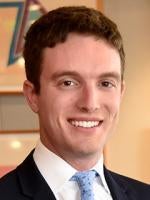As we broke the news, Glasser held in a 2-1 decision in favor of the Defense, defining an ATDS as: equipment that (1) stores telephone numbers using a random or sequential number generator and dials them or (2) produces such generated numbers and dials them. This allowed the Defendant Hilton’s equipment to be excluded from the TCPA ATDS definition, since it required a human choice, i.e. too much human intervention, as employees had to hit a button to use the dialer. This big win creates a standoff between the 11th and 9th circuit. Time will tell the sides that other circuit courts will take (notably Sixth Circuit Judge, the Honorable Jeffrey S. Sutton, was sitting by designation for the Glasser court and authored the majority opinion, which may give an indication as to his district’s direction). We’ve been covering the tremendous change Glasser effectuates in TCPAWorld, but we also want to note what it has not changed: the viability of claims for pre-recorded calls, and DNC claims.
For starters, the Eleventh Circuit went out of its way to affirm its ruling in Cordoba, that receipt of more than one telemarketing call in violation of the TCPA constitutes an injury in fact sufficient to satisfy Article III standing (ironically the Czar’s analysis last year on Cordoba predicted that TCPA class actions will become increasingly difficult in the 11th Circuit; Glasser continues to fulfill this prediction).
Deep in its opinion the Glasser Court addressed two “good” questions by the Plaintiffs: 1) Why would the TCPA exempt calls to consenting recipients from liability, if the statute aims to only cover randomly or sequentially generated numbers from being called, and 2) why would anyone ever use an autodialer to call people about a debt owed to the federal government; yet this is another exemption from liability? (collecting debts typically would not involve randomly identifying people). The Court answered that:
“§ 227(b)(1) makes callers liable if they make calls “using an automatic telephone dialing system or an artificial or prerecorded voice….The Act’s prohibition on artificial or prerecorded voices means that telemarketers who dial lists of telephone numbers have three options. They may obtain consumers’ consent to robocalls. They may connect each potential customer with a human representative. Or they may face liability under the Act.”
Therefore, the exemptions, in concert with Glasser’s narrower view of an auto-dialer, would not affect liability a telemarketer could face for violating the artificial or pre-recorded call provision of the TCPA.
The opinion does not touch on DNC claims explicitly, but it fair to say that this leaves such claims in the same bucket that Glasser placed pre-recorded claims: the very much alive bucket. Indeed the dissent pointed out that, “Happily, I think the majority is right to say that its decision does not declare open season for telemarketers”. The dissent further accentuated the majority opinion to drive home that “this case demonstrates, the alternative method of liability for calls made using an artificial or prerecorded voice is not illusory”. Thus, the defense ought to be warned that Glasser is by no means closing the door on liability for pre-recorded voice calls, and it is logical to conclude Glasser would allow courts in the 11th circuit to readily accept DNC claims as well.




 />i
/>i
